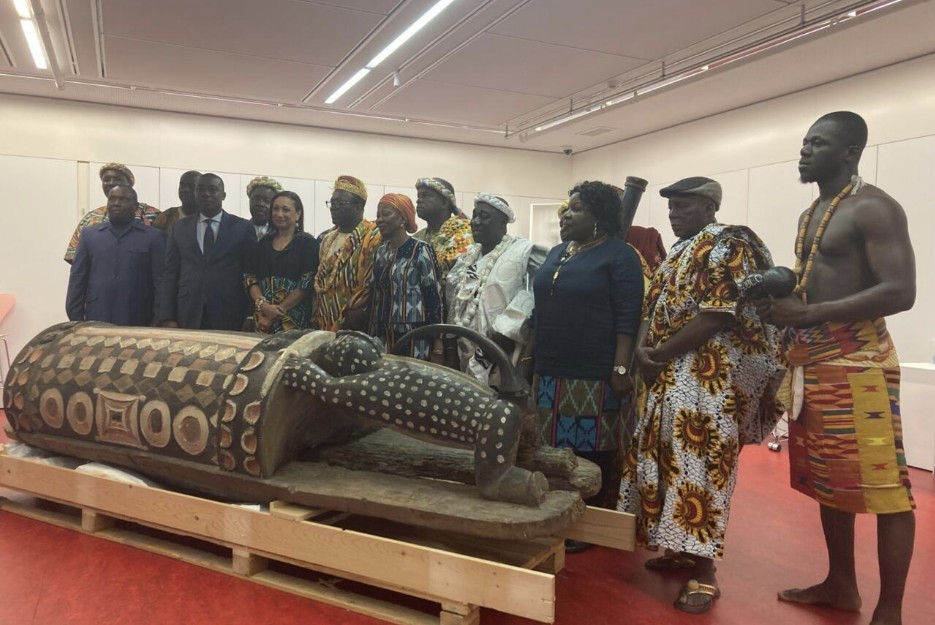The Loudest Voices Are Mic’d Up
- Sumaya Sultana
- Jun 30, 2025
- 2 min read

The BBC’s decision-making surrounding the broadcasting of this year’s Glastonbury Festival is not only an example of flagrant hypocrisy when it comes to state-sponsored censorship that the so-called free West condemns, but also goes against the deeply ingrained ethos of music festivals; that they, especially the most important of them, have come from places of protest.
The BBC chose not to live broadcast the Irish rap trio Kneecap’s set, as, according to The Guardian, a BBC spokesperson stated, “Whilst the BBC doesn’t ban artists, our plans ensure that our programming meets our editorial guidelines.”
The decision comes after English Prime Minister Keir Starmer claimed the trio’s appearance at Glastonbury was “not appropriate.”
Kneecap has been vocal in condemning genocide in Palestine, often leading to strong reactions on social media. Nevertheless, the set was filled with hundreds of waving Palestinian flags, and they led on booming chants of “Fuck Keir Starmer.”
The BBC should have devoted their energy and resources elsewhere. Not only was the performance broadcast, to massive online applause, by a woman now dubbed “Helen from Wales,” by social media, but the punk duo Bob Vylan led—broadcasted— chants of “Free Palestine,” and more controversially “Death to the IDF,” which are now being reviewed by the police.
The fact that Bob Vylan had the gall to start the chant is being shredded apart on social media, but what is much more important is how easily the crowd picked up the chant; a reflection of the fact that even on English soil, the heart of the Empire, condemnation of Israeli war crimes grows stronger.
This flurry of political activity at Glastonbury should come as no surprise to anyone. Organisers of the festival have partnered with various left-wing causes, donating proceeds to the Campaign for Nuclear Disarmament throughout the 1980s and hosting talks by Jeremy Corbyn and Ukrainian President Volodymyr Zelenskyy at the outbreak of the Russia-Ukraine war. Yet arguably nothing has been as radical as the ideas espoused onstage this year.
These calls to action bring Glastonbury back to its roots. Contemporary music festivals are still grounded in the aesthetics of the 1960s counterculture movement, yet we have abandoned its principles. It is not just Glastonbury, even if the festival is the most glaring example of successful activism. Coachella’s origins can be traced back to a 1993 Pearl Jam concert, which was boycotted in protest against Ticketmaster’s monopoly over concert venues in the US. Yet, today, the festival could not be more distanced from its original purpose.
Musicians must raise their voices and express solidarity for critical issues such as the Palestinian genocide; often, they are the few able to express these values without fear of harsh government crackdown. Yet the pushback highlights the difficulty of disseminating these ideas, while simultaneously underscoring their evergreen importance.





Comments